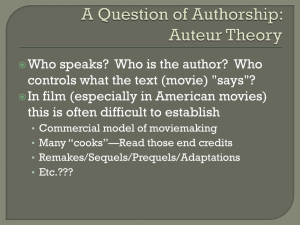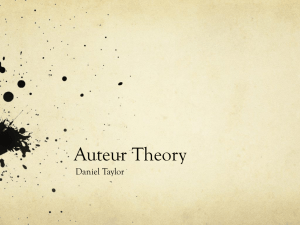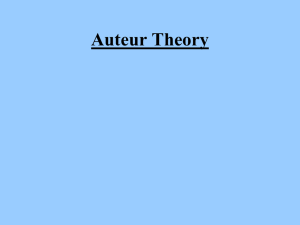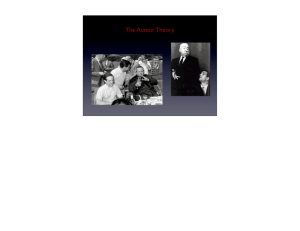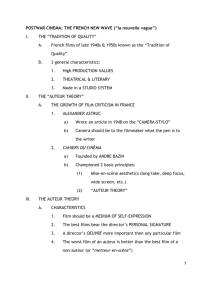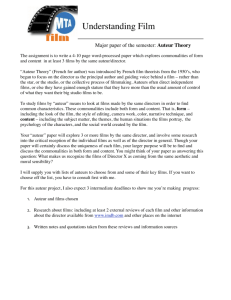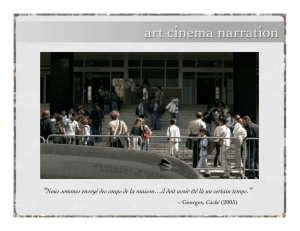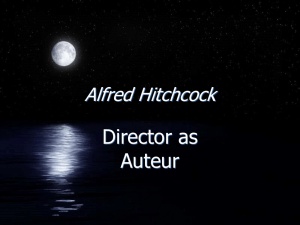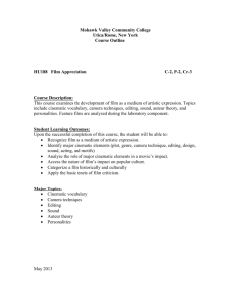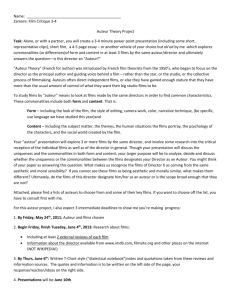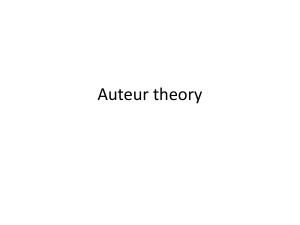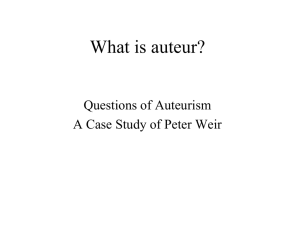Auteur Theory – For & Against
advertisement
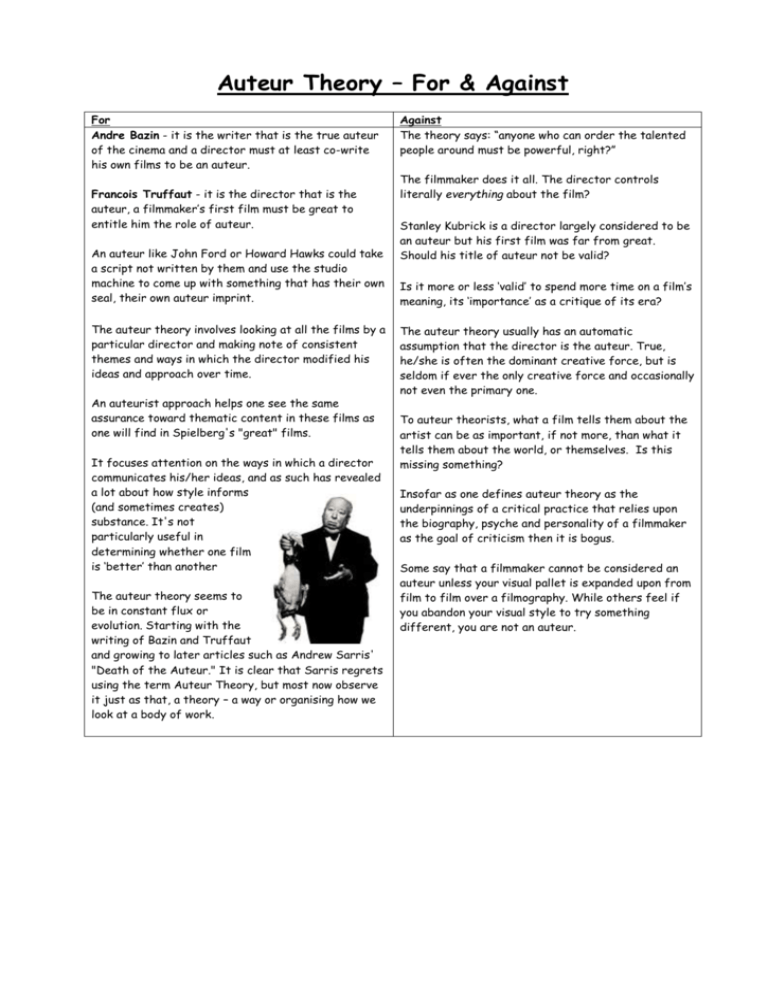
Auteur Theory – For & Against For Andre Bazin - it is the writer that is the true auteur of the cinema and a director must at least co-write his own films to be an auteur. Francois Truffaut - it is the director that is the auteur, a filmmaker’s first film must be great to entitle him the role of auteur. An auteur like John Ford or Howard Hawks could take a script not written by them and use the studio machine to come up with something that has their own seal, their own auteur imprint. The auteur theory involves looking at all the films by a particular director and making note of consistent themes and ways in which the director modified his ideas and approach over time. An auteurist approach helps one see the same assurance toward thematic content in these films as one will find in Spielberg's "great" films. It focuses attention on the ways in which a director communicates his/her ideas, and as such has revealed a lot about how style informs (and sometimes creates) substance. It's not particularly useful in determining whether one film is ‘better’ than another The auteur theory seems to be in constant flux or evolution. Starting with the writing of Bazin and Truffaut and growing to later articles such as Andrew Sarris' "Death of the Auteur." It is clear that Sarris regrets using the term Auteur Theory, but most now observe it just as that, a theory – a way or organising how we look at a body of work. Against The theory says: “anyone who can order the talented people around must be powerful, right?” The filmmaker does it all. The director controls literally everything about the film? Stanley Kubrick is a director largely considered to be an auteur but his first film was far from great. Should his title of auteur not be valid? Is it more or less ‘valid’ to spend more time on a film’s meaning, its ‘importance’ as a critique of its era? The auteur theory usually has an automatic assumption that the director is the auteur. True, he/she is often the dominant creative force, but is seldom if ever the only creative force and occasionally not even the primary one. To auteur theorists, what a film tells them about the artist can be as important, if not more, than what it tells them about the world, or themselves. Is this missing something? Insofar as one defines auteur theory as the underpinnings of a critical practice that relies upon the biography, psyche and personality of a filmmaker as the goal of criticism then it is bogus. Some say that a filmmaker cannot be considered an auteur unless your visual pallet is expanded upon from film to film over a filmography. While others feel if you abandon your visual style to try something different, you are not an auteur.
